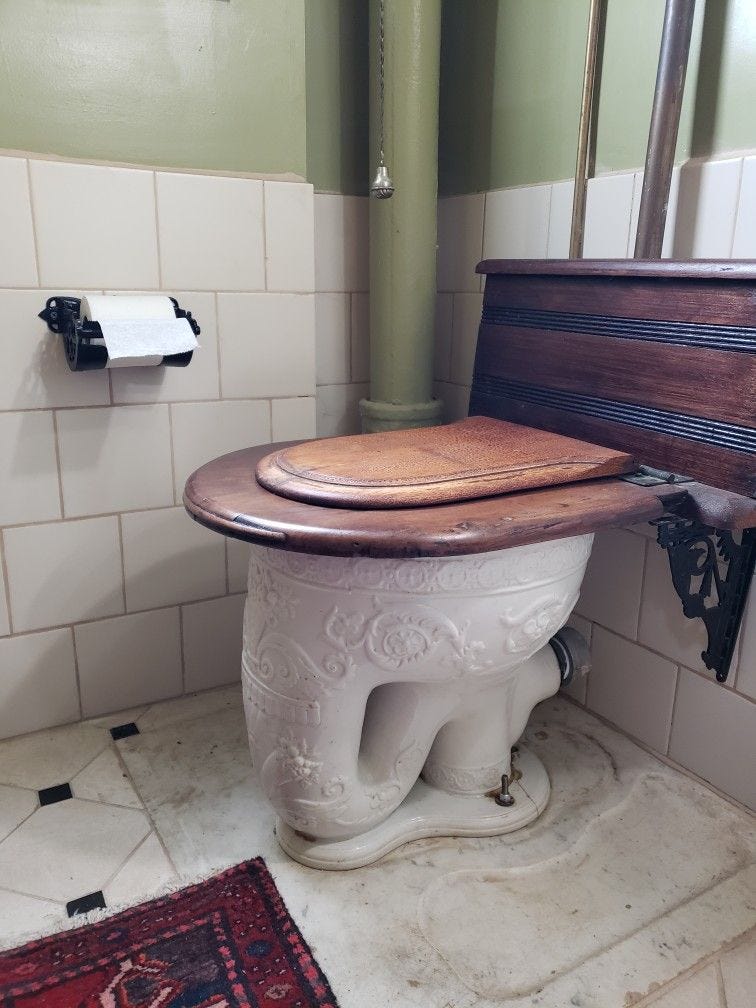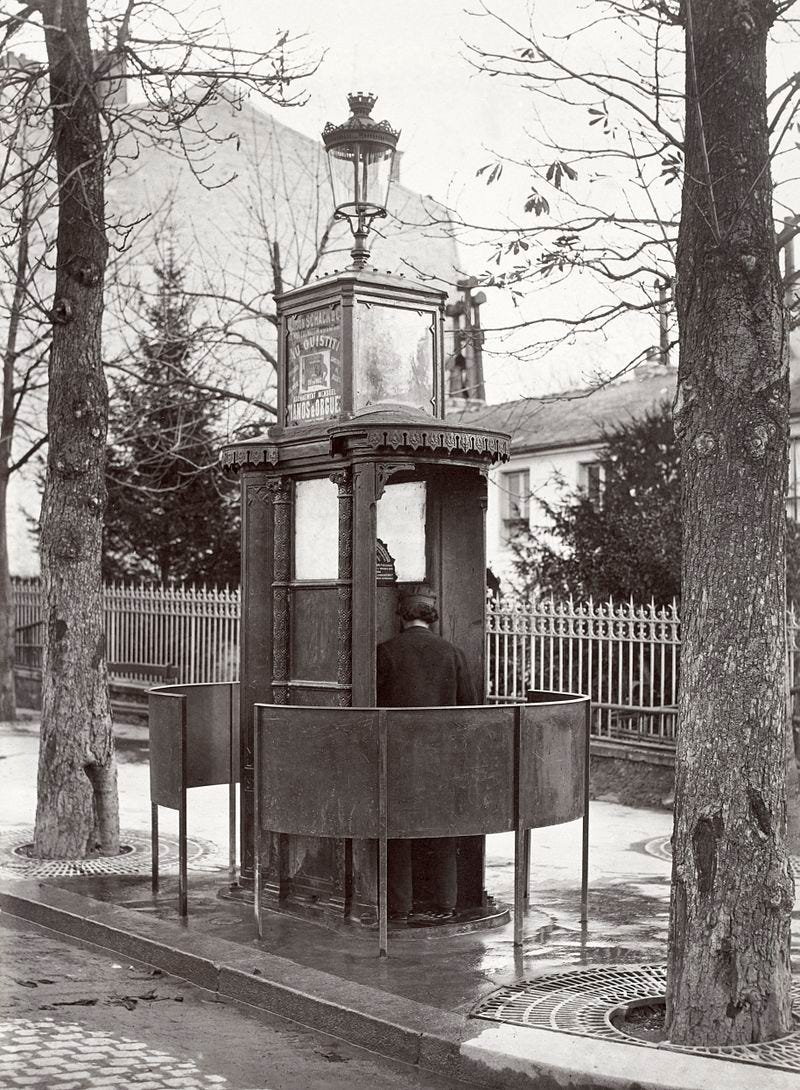Chapter 2 Author's Notes
What should I call it? Toilet, Privy, Restroom, Lavatory, or Water Closet
If you haven’t read Chapter 2 of Louisa Sophia and The Last Chance Tour - The Race, you might want to do that to have some context for the following notes.
Have you ever considered what to call a bathroom enough to devote hours of research to the topic? I have been on this quest more than once.
You might be deceived into thinking that the word toilet has always been related to a bathroom but before the 1880s it meant dressing room. And so my odyssey began.
While writing Ancient Civilizations, Book 1 of Lamentations and Magic, I spent half a day finding out if one of the top hotels in the world, The Shepheard’s Hotel in Cairo, had indoor plumbing in 1883.
I was surprised to find that, the hotel was at the forefront of the indoor plumbing revolution and had over 200 facilities that might have looked something like the one below.
Here is an excellent video about the history and grandeur of the hotel if you are interested.
I also found a lot of great info about the hotel at this site:
http://grandhotelsegypt.com/?p=576
Now came the real challenge. What general name was used to refer to a bathroom throughout the British Empire during the 1870s-1880s? In the end, I settled on using privy. After hours of research, it appeared to be the best of many possibilities, and at some point, I was writing science fiction and not a treatise on the history of the modern toilet. I moved forward, having lost the battle but not the war.
Now we come to the crux of the Chapter 2 Author’s Notes. The Race is a short chapter where Louisa must get from the roof of the Basilica to the far end of the school and reach the bathroom facilities on the ground floor before the headmistress arrives. It’s less than a thousand words long, and there is not much history involved, yet I spent hours tackling the same questions once again.
What did they call the dang restroom in France in 1874, the setting for Louisa Sophia and The Last Chance Tour?
I did not start out expecting to equivocate. In every quest where I seek clarity from the hazy past, I begin with a belief that somewhere, someone has asked and answered these questions before. Like Galahad in search of the Grail, I set out to find the French name for the toilet of the time and try to understand how the boarding school of St. Denis provided toilet facilities for almost 600 students and faculty without indoor plumbing. And, all of them women to boot.
My first explorations led me to an innovation that began in Paris in the 1830s, which changed the aroma of cities around the globe. Before this invention, Paris must have smelled worse than New Orleans after a week of Mardi Gras. I learned that some blessed person, whose olfactory senses must have reached a breaking point, created the first public facilities so that men would stop peeing wherever they damn well pleased. Ladies and gentlemen, meet the Pissoir.
A few of these sacred relics exist on the streets of Paris today. They remind us of how far we have come as a species. Though fascinating in an urban planning kind of way, this did not fill my cup. The only learning I came away with while I visited The Knights of Nee was that, unlike the luxury hotels of the 1880s, broad use of indoor plumbing was a few years in the future for poor Louisa and her classmates.
I soon fell down another rabbit cave and found Paris’s oldest pre-existing indoor toilet. You can see the 700 year-old throne if you visit the Tower of John the Fearless while in the City of Lights. I can assure you that this shall not be on the agenda when I visit St. Denis and Paris this coming December.
And yet again, like the most noble of knights, I came away relieved, yet empty-handed.
My lack of reading and speaking French slowed my progress until I found a castle where they claimed to have what I sought. Alas, they only laughed at me with an outrageous French accent and said, “I fart in your general direction,” before catapulting a cow at me.
Like the Knights of the Round Table, I retired from the field of battle and settled once again on the most promising of many possibilities. And so, now you know the trials that I, the poor writer, went through to settle on the word Lavatory.





